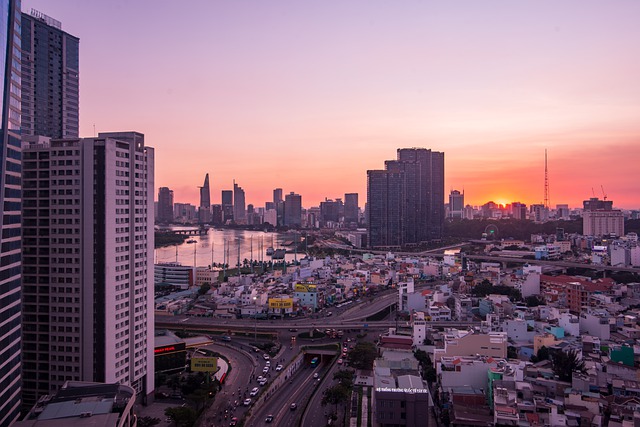- Vietnam is a clear winner, with its GDP already back above pre-Covid-19 levels, according to an Oxford Economics forecast
- Growth in the short term for ASEAN-6 is likely to be bumpy, particularly for Thailand, Indonesia, and Malaysia
- A more synchronized recovery is seen in the second half of the year as the regional rollout of vaccines allows for sustained easing in restrictions
- Restrictions expected to ease even in the Philippines, despite the expectation that only 35% of its population will be vaccinated by year-end, as it experienced one of the strictest and more prolonged lockdowns in the region
The average gross domestic product (GDP) of ASEAN-6 will rise 5.3% this year, led by Vietnam, with most economies returning to pre-coronavirus GDP levels in the second half of 2021, according to a new forecast from Oxford Economics.
“We expect a solid rebound in growth this year across the region,” said the research briefing.
However, growth in the short term for ASEAN-6 is likely to be bumpy, particularly for Thailand, Indonesia, and Malaysia, said Oxford Economics, a global economic forecasting service.
While economic growth has picked up from the sharp falls in the second quarter of 2020, the recovery across the ASEAN-6 economies has been uneven, it added.
Vietnam has been a clear winner, as its successful containment of infections has led to faster normalization in activity, with GDP already back above pre-Covid-19 levels.
Thailand and the Philippines have lagged. Travel restrictions have weighed on the recovery in Thailand, despite its earlier success in controlling infections, while prolonged lockdowns have weighed on activity in the Philippines.
“We expect a more synchronised recovery in H2 2021 as the regional rollout of vaccines allows for sustained easing in restrictions and the recovery in global trade broadens,” said the report.
It said restrictions should ease once again from February/March and activity to bounce back strongly thereafter. This is on the assumption that social distancing measures will ease as vaccinations become more widespread.
“One exception is Vietnam, where GDP is already back above pre-pandemic levels, making the vaccine less of a game changer.”
Singapore is expected to be the first among the ASEAN-6 economies to reach herd immunity, based on current procurement plans, with around 87% of the population set to be vaccinated by the end of 2021.
Oxford Economics said it even expects restrictions to ease in the Philippines, despite the expectation that only 35% of its population will be vaccinated by the end of the year, as it experienced one of the strictest and more prolonged lockdowns in the region.
“The start of vaccinations should buoy consumer and business confidence across the region, spurring an improvement in service sector activity, including ‘social spending’ and domestic tourism. But we expect tourism-related sectors will be the last to recover as border controls remain in place.”
The manufacturing sector remains key to recovery, the report said.
This year, electronic exporters are seen to continue to benefit as the upturn in technology cycle goes beyond the ‘stay at home’ demand and reflects a longer-term shift towards digitalization. However, recovery in manufacturing and trade is seen to extend beyond the tech sector over 2021, amid a strong 8.1% rise in world trade volumes this year.
Risks to the outlook include a slower-than-expected vaccine rollout and a renewed upsurge in infections, which could see the recent trade recovery delayed into 2022.
The report also stressed that despite its strong growth projections for this year, a return to the pre-pandemic “trend growth” will take longer and there will be some lasting economic scars due to the pandemic, including a slow labor market recovery with the risk of some permanent job losses and lower capital accumulation.
ASEAN-6 is comprised of the Southeast Asian countries of Indonesia, Malaysia, Philippines, Singapore, Thailand and Vietnam.
Image by Phu Truong from Pixabay









